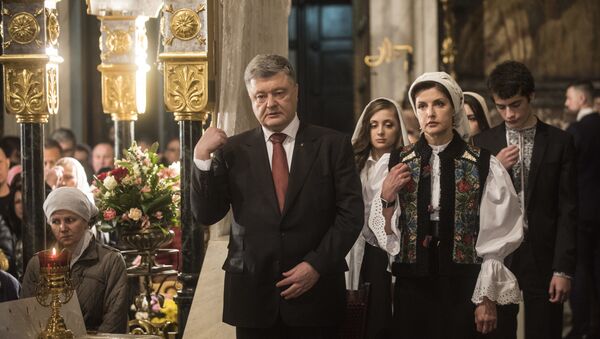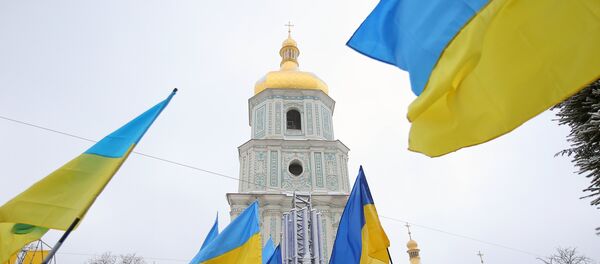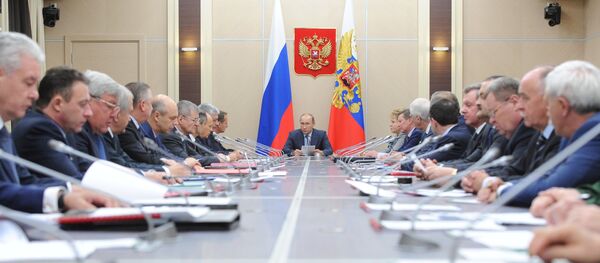“Russia is not going to interfere with religious processes, especially in another country. But we see how dangerous such experiments and blatant meddling by a state in religion can be for the global Orthodox Christianity”, Putin told Serbian newspapers in an interview published on Wednesday.
READ MORE: Split in Ukraine's Orthodox Church Community Linked to Politics — Kremlin
He described as a political project the creation of a new Orthodox Church in Ukraine, which was finalized this month in a decree on its independence signed by the Istanbul-based ecumenical patriarch.
"The new Church structure is a mere political project, a secular project. Its main aim is to divide the people of Russia and Ukraine and stoke both ethnic and sectarian tension", Putin said.
On 6 January, Constantinople Patriarch Bartholomew handed over the tomos of autocephaly to the head of the "new church" of Ukraine. Under the tomos, the church will have exclusive jurisdiction in Ukraine, but will not be authorized to appoint bishops and establish parishes abroad, effectively becoming dependent on the Constantinople Patriarchate.
Moreover, the Moscow Patriarchate has repeatedly stressed that the process was nothing more than a "legalization of schism" and insisted that the council was a "complete failure" and no unification took place at all.
Ukrainian President Petro Poroshenko has been touring the country since then with a decree he received in Istanbul from the Constantinople patriarch, granting independence to a new Orthodox Christian Church in Kiev. According to the Ukrainian-based media reports, Poroshenko plans to visit to 17 regions, however, this number could increase.
READ MORE: Russian Orthodox Church: Kiev Church Self-Rule Impossible Without Moscow Consent
Meanwhile, over half of Ukrainians believe that the country's authorities are violating the principle of the separation of power and interfering in church affairs, a poll conducted by Sociological Research Center "Sofia" revealed in December. In particular, 52.5 percent of respondents said that the Ukrainian authorities were violating the principle of separation of church and state. However, 25.8 percent of those polled believed the authorities obeyed the principle.






